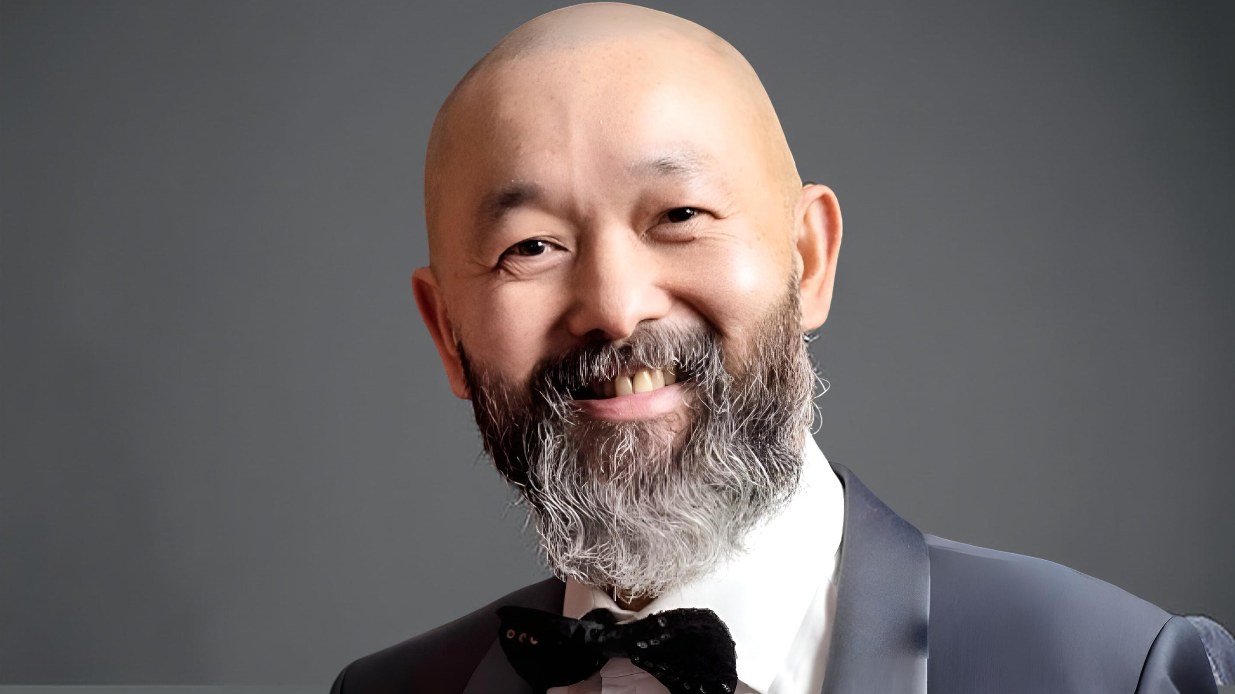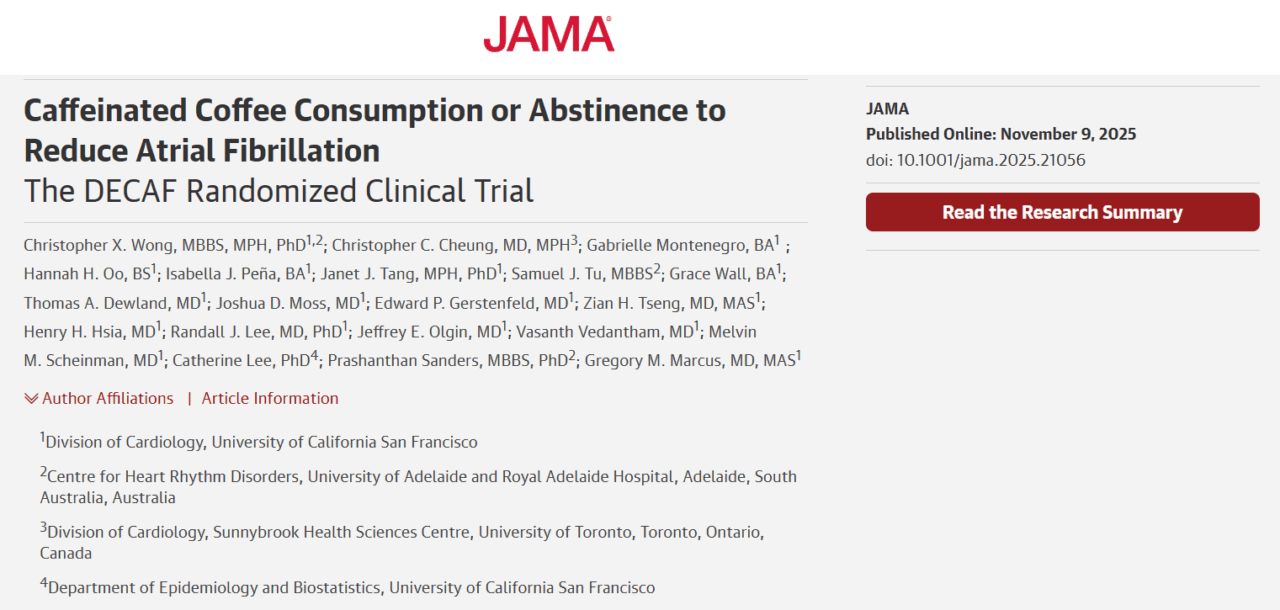
James P. Crowley and Professor Erwin Loh About Caffeine and It’s Positive Effects
James P. Crowley, Professor of Medicine emeritus at Brown University, reposted Professor Erwin Loh’s post on LinkedIn:
“Caffeine appears to do the opposite of what you might think when it comes to the heart. Scientists have found that a cup of coffee a day actually protects the heart from atrial fibrillation – a condition that can lead to stroke and heart failure.
In the DECAF (Does Eliminating Coffee Avoid Fibrillation) trial, the researchers found that caffeine resulted in a 39% lower risk of recurrent AF events, compared to those who abstained – and they have a few theories as to why this might be the case.
“Coffee increases physical activity which is known to reduce AF,” said senior author Professor Gregory Marcus from the Division of Cardiology at UCSF.
“Caffeine is also a diuretic which could potentially reduce blood pressure and in turn lessen AF risk.
Several other ingredients in coffee also have anti-inflammatory properties that could have positive effects.””
Quoting Professor Erwin Loh’s post:
“Caffeine appears to do the opposite of what you might think when it comes to the heart. Scientists have found that a cup of coffee a day actually protects the heart from atrial fibrillation – a condition that can lead to stroke and heart failure.
In the DECAF (Does Eliminating Coffee Avoid Fibrillation) trial, the researchers found that caffeine resulted in a 39% lower risk of recurrent AF events, compared to those who abstained – and they have a few theories as to why this might be the case.
“Coffee increases physical activity which is known to reduce AF,” said senior author Professor Gregory Marcus from the Division of Cardiology at UCSF. “Caffeine is also a diuretic which could potentially reduce blood pressure and in turn lessen AF risk. Several other ingredients in coffee also have anti-inflammatory properties that could have positive effects.”
Title: Caffeinated Coffee Consumption or Abstinence to Reduce Atrial Fibrillation
Authors: Christopher X. Wong, Christopher C. Cheung, Gabrielle Montenegro, Hannah H. Oo, Isabella J. Peña, Janet J. Tang, Samuel J. Tu, Grace Wall, Thomas A. Dewland, Joshua D. Moss, Edward P. Gerstenfeld, Zian H. Tseng, Henry H. Hsia, Randall J. Lee, Jeffrey E. Olgin, Vasanth Vedantham, Melvin M. Scheinman, Catherine Lee, Prashanthan Sanders, Gregory M. Marcus

Read full article here.
Stay updated with Hemostasis Today.
-
Feb 23, 2026, 17:59Wolfgang Miesbach: Real-World Evidence of Emicizumab on Joint Outcomes in Hemophilia A
-
Feb 23, 2026, 17:56Shiny K Kajal: The Transfusion Reaction We Often Miss
-
Feb 23, 2026, 17:53Radheshyam Meher: Contributing to the Transfusion Evidence Round-Up for International Childhood Cancer Day 2026
-
Feb 23, 2026, 17:46Mahesan Subramaniam: The Physiological Impact of Anger on Immunity
-
Feb 23, 2026, 17:42Bryan Fry: First Evidence That Bothrops atrox Venom Directly Activates Human Factor VII
-
Feb 23, 2026, 17:34Bastu Odoka: Why Blood Should NOT be Left at the Bedside to ‘Warm’
-
Feb 23, 2026, 17:28Henry Burkitt: Patients Are Challenging How the Medicines Policy System Works in England
-
Feb 23, 2026, 16:50Mutaz Al‑Sabah: Interesting Webinar on FH in Women is Now Available to Watch
-
Feb 23, 2026, 16:36Stéphanie Roullet։ New Method to Explore Primary Haemostasis in Cirrhotic Patients

